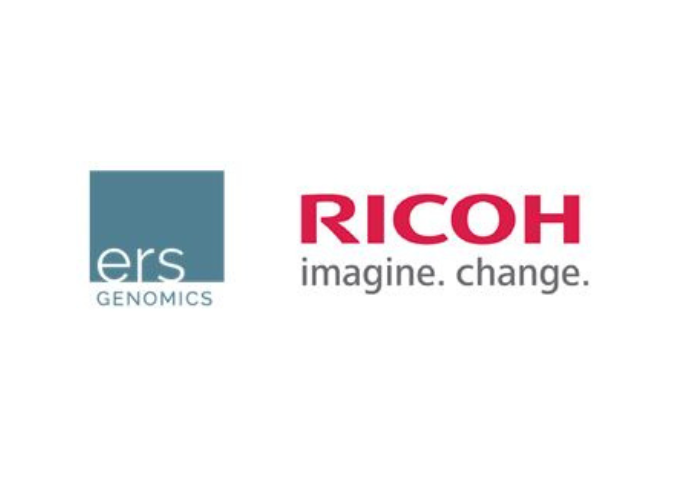Tokyo, Japan, and Dublin, Ireland: Ricoh Company, Ltd. announces a non-exclusive licensing agreement in the USA and Japan with ERS Genomics Limited ("ERS Genomics") for access to the foundational CRISPR/Cas9 genome editing technology patents managed by ERS Genomics.
CRISPR/Cas9 stands as a breakthrough gene editing technology, enabling modification of targeted genome sequences with ease. The technology is an essential tool in drug discovery research and finds application across various fields.
In 2022, Ricoh completed the acquisition of Elixirgen Scientific, Inc. (Baltimore, Maryland, USA). Elixirgen Scientific possesses core technologies in rapid and efficient differentiation*1 of human iPS cells*2, and mRNA*3 design, production, and management.
We aim to predict the mechanism of action of candidate drugs for patients with varied genetic backgrounds and to improve the speed and efficiency of mRNA design by combining these core technologies with CRISPR/Cas9 genome editing technology. Through manipulations such as genetic editing of cells to enhance or diminish specific functions, it becomes possible to create highly reliable disease models, including those for rare diseases. This advancement is anticipated to lead to shorter drug development timelines and increased success rates.
Ricoh has been expanding the application areas of Elixirgen Scientific's technology by leveraging our cultivated expertise in digital and artificial intelligence technologies. This initiative aims to accelerate personalized medicine*4, drug discovery research and regenerative medicine. Ricoh continues to contribute to the acceleration of drug development research through the diverse solutions provided by Elixirgen Scientific.
Summit Pharmaceuticals International Corporation (Chiyoda-ku, Tokyo, Japan), a subsidiary of Sumitomo Corporation (Chiyoda-ku, Tokyo, Japan), is the exclusive representative of ERS Genomics in Japan.
*1 Differentiation: The process in which a cell becomes specialized in order to perform a specific function, as in case of a liver cell, a blood cell or a neuron.
*2 Induced pluripotent stem (iPS) cell: iPS cells, artificially created pluripotent stem cells, have the capability to differentiate into various cell types.
*3 mRNA (messenger ribonucleic acid): mRNA is the RNA that carries the genetic information of DNA and functions as the instructions for protein synthesis.
*4 Personalized medicine: Providing optimal treatment based on the individual's health status, genetic information, and other personal characteristics.



